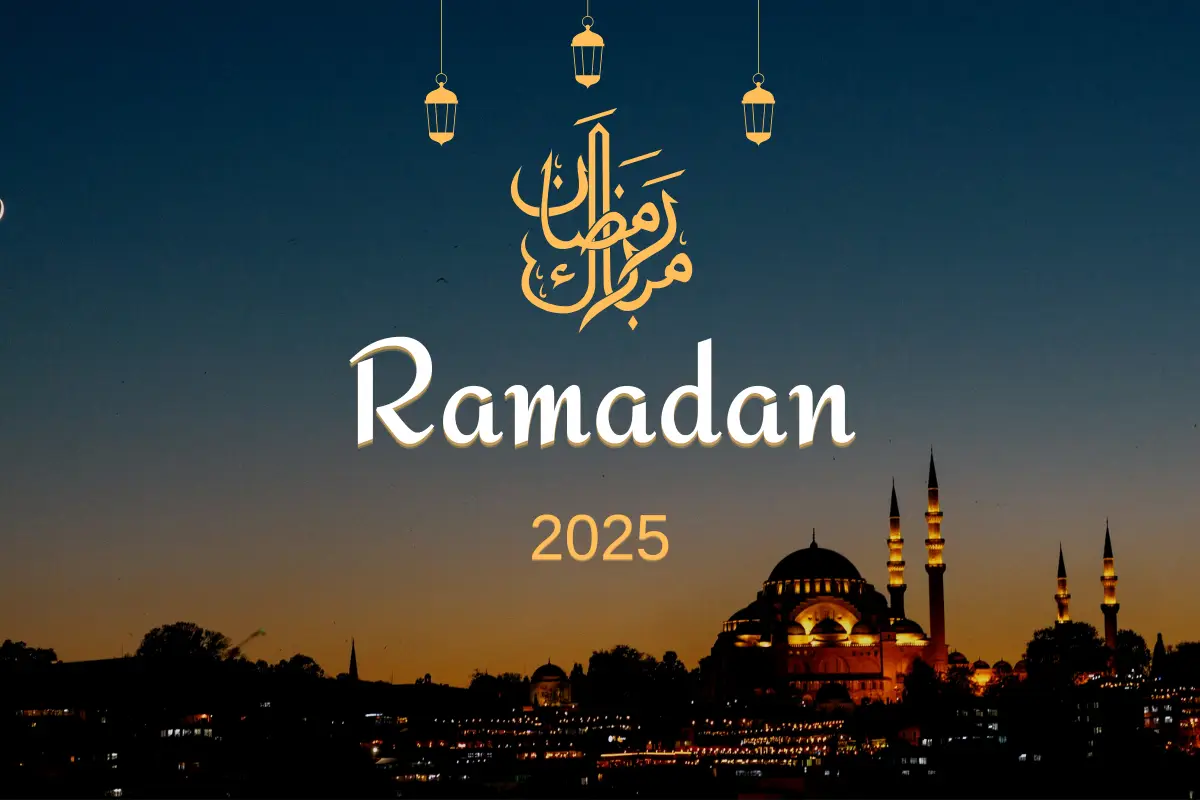Ramadan in Morocco is not just a time of spiritual reflection and fasting but also a celebration of the country’s rich culinary traditions. If you’re planning to visit Morocco during this sacred month, you are in for an unforgettable experience that goes beyond the stunning landscapes and welcoming people. Moroccan cuisine during Ramadan takes on a special significance, with traditional dishes that are both flavorful and deeply rooted in cultural practices. This culinary journey through Ramadan will introduce you to the mouth-watering dishes that make this time of year truly unique.
1. The Importance of Food During Ramadan in Morocco
During Ramadan, Moroccans fast from dawn to sunset, but the breaking of the fast, known as iftar, is an elaborate and cherished event. Moroccan families gather to enjoy a variety of traditional dishes that have been passed down through generations. The food served during Ramadan is not only about nourishment but also about bringing people together and sharing the blessings of the holy month.
From the famous harira soup to the sweet delicacies that follow the meal, each dish is carefully prepared to energize and restore after a long day of fasting. If you’re fortunate enough to visit Morocco during Ramadan, take the opportunity to indulge in these exceptional dishes that capture the heart and soul of Moroccan culture.
2. Harira: The Heart of Moroccan Ramadan Cuisine
One of the most iconic dishes served during Ramadan in Morocco is harira, a rich, hearty soup made with tomatoes, lentils, chickpeas, and meat (usually lamb or beef). This dish is a staple at iftar tables and is known for its comforting, warming qualities—perfect for breaking the fast after a long day.
Harira is often accompanied by chebakia (a deep-fried sweet dough), dates, and a variety of breads. The soup’s preparation varies by region, but it is always infused with a blend of spices like cinnamon, ginger, and saffron. For a taste of authenticity, many Moroccans make it from scratch using family recipes that have been perfected over generations.
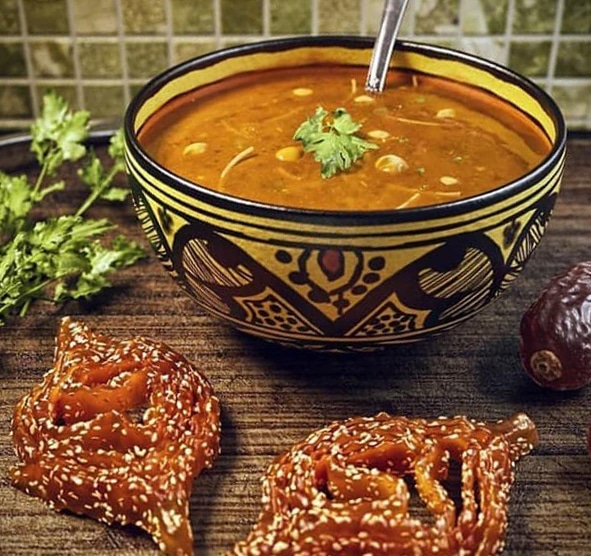

3. Dates and Milk: The Classic Ramadan Starter
Breaking the fast traditionally begins with the consumption of dates and milk, a combination that offers both hydration and energy. Dates are packed with natural sugars, making them the perfect quick energy boost after a long day of fasting. The milk helps to rehydrate the body, while the natural sweetness of the dates adds a comforting touch to the meal.
This simple yet symbolic start to iftar is an essential part of Moroccan Ramadan customs, offering a moment of connection and reflection before the main dishes are served
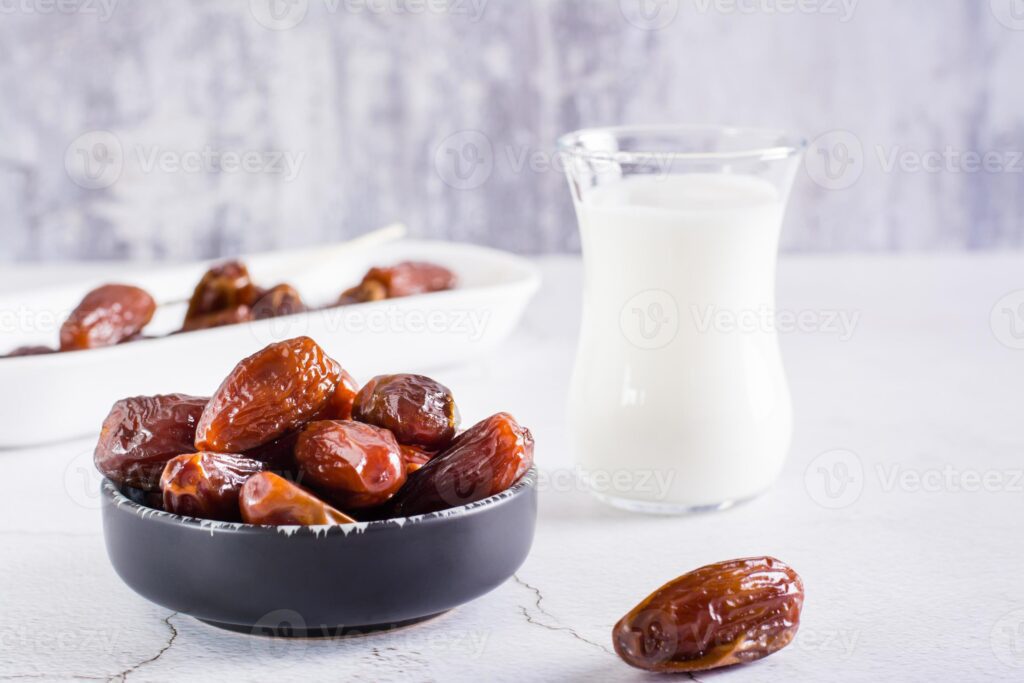

4. B’stilla: A Flaky, Savory Delight
Another must-try dish during Ramadan in Morocco is b’stilla (also known as pastilla), a savory pie made with layers of thin, flaky pastry filled with pigeon or chicken, almonds, eggs, and a delicate blend of spices. The dish is topped with powdered sugar and cinnamon, which gives it a delightful sweet and savory balance.
Although b’stilla is often served at weddings and special occasions, it takes on a more prominent role during Ramadan. The intricate preparation and use of spices make this dish a true reflection of Moroccan culinary sophistication.
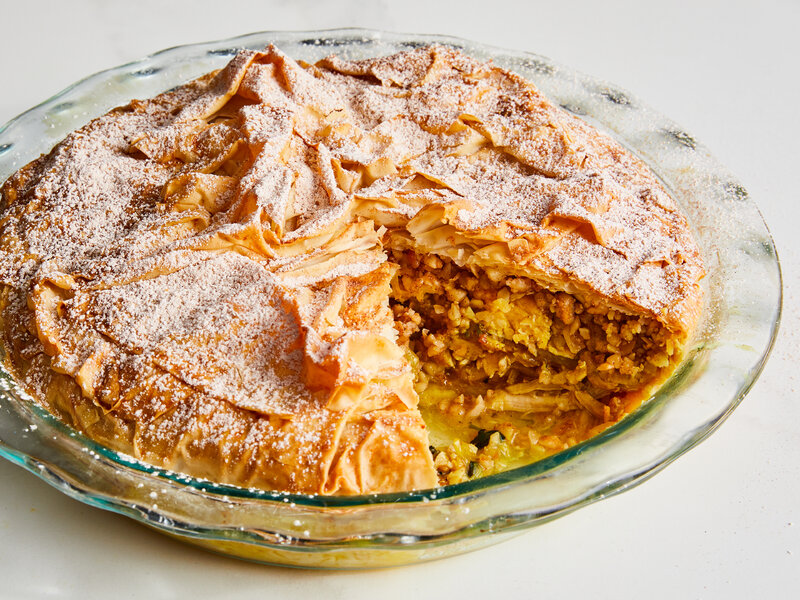

5. Tagine: Slow-Cooked Moroccan Comfort
No culinary journey through Morocco would be complete without experiencing tagine, the slow-cooked stew that has become synonymous with Moroccan cuisine. During Ramadan, tagine dishes vary, but common ingredients include lamb, chicken, vegetables, dried fruits like apricots or prunes, and a blend of fragrant spices such as cumin, coriander, and cinnamon.
The combination of sweet and savory flavors in a traditional tagine makes it a perfect dish to enjoy during iftar, especially when paired with a side of fresh, crusty Moroccan bread.
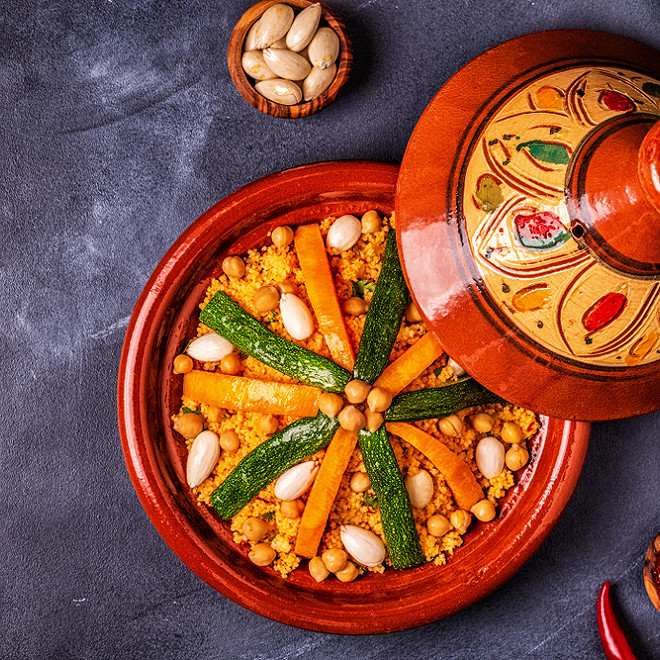

6. Sweet Delicacies: A Sweet End to the Meal
Ramadan in Morocco is also a time for indulging in sweet treats, many of which are served at the end of the iftar meal. Among the most popular desserts are chebakia (sweet sesame cookies coated in honey) and sellou (a sweet mixture of flour, almonds, and sesame seeds).
These sweets are often paired with atay (Moroccan mint tea), a refreshing beverage that is served throughout the day and especially during Ramadan. The tea’s strong, sweet flavor complements the richness of Moroccan desserts, creating the perfect finish to a satisfying meal.
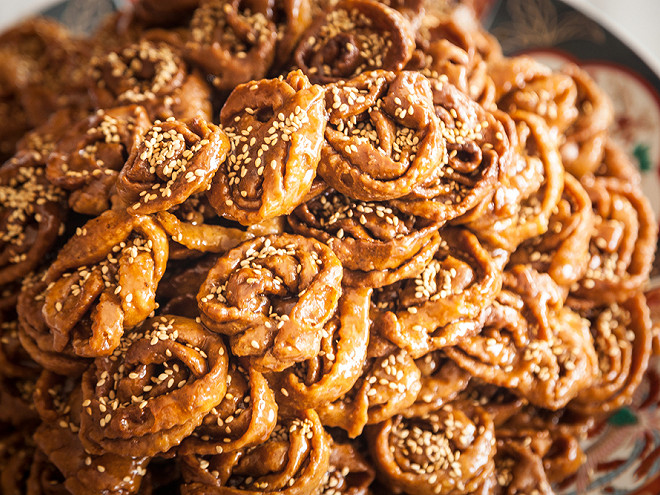

7. Tips for Enjoying Moroccan Cuisine During Ramadan
- Timing is Key: If you’re visiting Morocco during Ramadan, be mindful of meal times. While restaurants and cafes might have limited hours during the day, they will be open for iftar in the evening, where you can experience the full spread of traditional dishes.
- Join a Local Family: One of the best ways to experience authentic Moroccan Ramadan food is by joining a local family for iftar. Many families welcome guests, offering a genuine and warm insight into Moroccan hospitality.
- Try Street Food: After iftar, you’ll find street vendors offering fresh Moroccan treats like sfiha (savory pastries), msamen (Moroccan flatbread), and more. These are perfect for a late-night snack while exploring the lively streets of Moroccan cities.
8. How Paddle Out Morocco Can Enhance Your Ramadan Experience
If you’re planning to visit Morocco during Ramadan, why not combine your culinary journey with an unforgettable surf experience at Paddle Out Morocco? Located near the beautiful beaches of Tamraght and Taghazout, our surf camp offers the perfect escape during Ramadan. After a day of fasting and indulging in delicious Moroccan food, you can unwind with a relaxing surf session or take part in our guided tours to explore the stunning landscapes of the region.
Call to Action: Ready to explore Morocco’s rich food culture during Ramadan? Book your stay with us at Paddle Out Morocco and immerse yourself in an unforgettable culinary and surf experience. Book Now.
Conclusion: Embrace the Spirit of Ramadan in Morocco
Ramadan in Morocco is more than just a time of fasting; it’s a celebration of culture, tradition, and community. The traditional dishes you’ll encounter during this month are a reflection of the country’s rich history and diverse culinary influences. Whether you’re savoring a bowl of harira, breaking your fast with dates and milk, or indulging in sweet chebakia, you’ll be treated to an authentic experience that connects you to the heart of Moroccan life.
Don’t miss the opportunity to experience this culinary journey during Ramadan. Join us at Paddle Out Morocco for a unique blend of food, culture, and adventure. Book your stay today and savor the best of Morocco!

